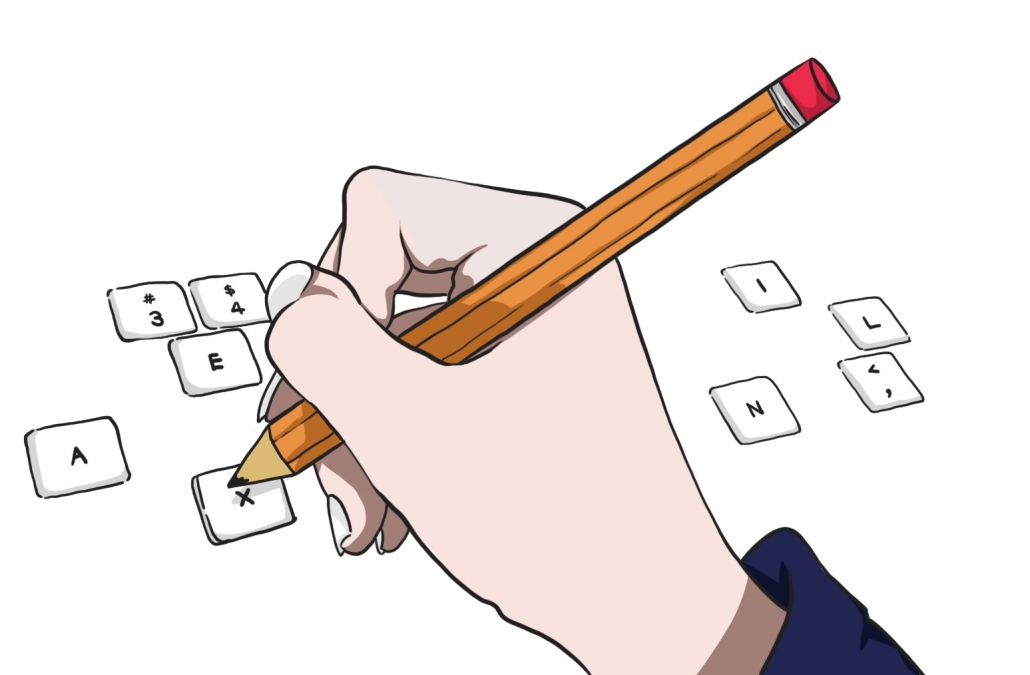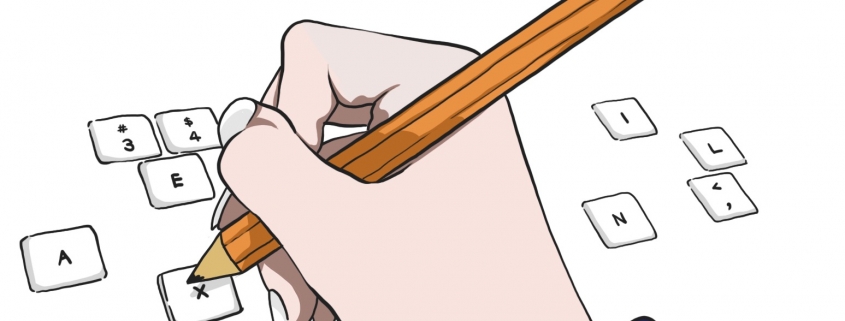Professors should avoid blanket laptop bans in classes

It is a common sight: students packed into a lecture hall with the glow of laptop screens illuminating their faces as the sound of click-clacking keys fills the room. Students pay careful attention to each word and furiously type as the professor blasts through material that will be on the next midterm.
Seemingly just as common is the sight of students using their laptops during class to scroll through an abundance of social media sites, text friends or buy jeans that are finally on sale.
Due to counterproductive technology use, it seems increasing numbers of professors have opted to implement laptop bans during class. There is no argument that students can get distracted, and that for some students, hand-writing notes is a better style of learning. However, professors should still allow students to be responsible for their own learning and should therefore not place unconditional bans on laptops in classes.
Professors point to studies that show that hand-written notes help students retain more of a lecture than typing it on a laptop. This may be true if laptops are used only for note-taking. However, as professor Matthew Numer of Dalhousie University in Canada explains, laptops serve an alternative use in allowing students to submit responses and opinions about material covered during the lecture. After running surveys and focus groups of 1,100 students, Numer found that using an app on a laptop in this interactive way actually promoted undergraduate engagement.
There are certainly times that laptops may not be appropriate in lectures. But there is no avoiding the fact that technology pervades daily life, and blanket laptop bans do not consider the ways that technology can be used positively.
When professors implement class-wide laptop bans, they fail to accommodate students with disabilities. Morgan Polikoff, an associate professor at the USC Rossier School of Education, went back and forth with a ban but finally settled on allowing technology in the classroom. He argues that while exceptions are made for students with disabilities to use laptops, these bans often force them to be singled out in class. In fact, students with disabilities may be questioned by their peers as to why they get laptop privileges and others do not. This may cause unease and negatively impact their ability to learn.
Additionally, students at USC are adults and therefore should have the freedom to make their own decisions. Students are spending their own time, energy and money to be at USC, and it is their responsibility to best utilize these resources. If a student wants to go to a lecture and spend time scrolling through social media rather than listening to their professor, that should be their own decision. Ultimately, students will feel the consequences of their own choices.
Taking responsibility for one’s own learning is an important skill for students to take into the workforce. Instead of being told how to learn, students ought to figure out what’s best for them, often through trial and error.
In the hit show “The Office,” Michael Scott, the boss of the paper company Dunder Mifflin, deadpans “When I discovered YouTube, I didn’t work for five days. I did nothing. I watched Cookie Monster sing ‘Chocolate Rain’ about a thousand times.”
This is played for laughs, because of course no one would actually do something like that at work, right? However, life truly does imitate art; this past summer, an employee was fired from Robert De Niro’s production company in a $6 million lawsuit for allegedly binging the series “Friends” while at work.
As the allure of technology and its distraction grows stronger, it is important for professors to allow their students to learn self-control. College is the time for students to practice how to resist the temptation of technology, rather than being instructed how to act. It is better to learn the consequences of misusing a laptop by getting a
sub-standard grade on a quiz in college rather than being fired in a multi-million dollar lawsuit later in life.
If students think handwriting notes will improve their learning, it should be their decision, and their decision only, to put away their laptop. Laptop bans marginalize minority groups, disregard the benefits of technology and do not treat students as adults who are responsible for their own choices.

